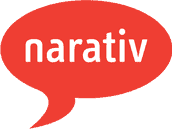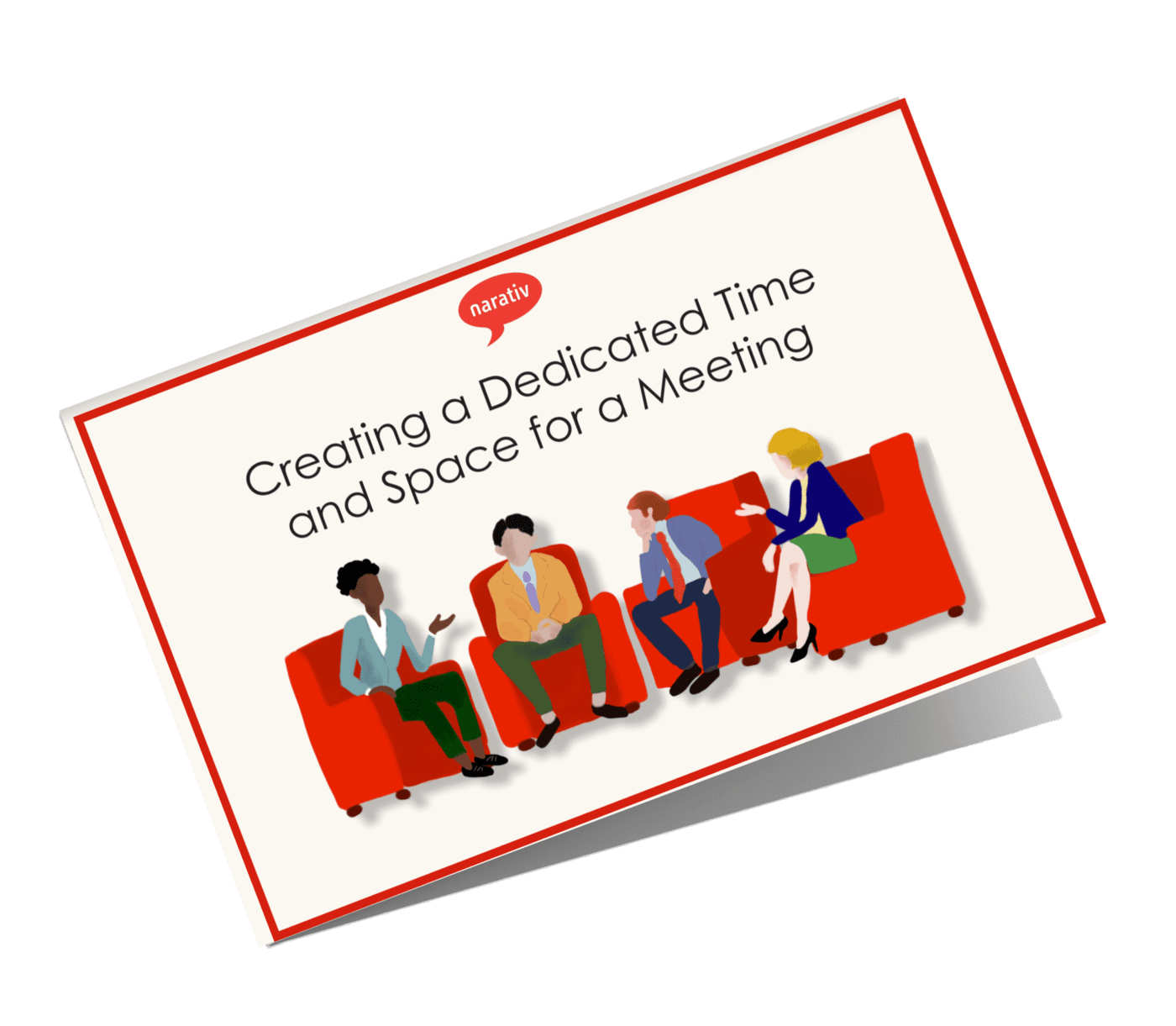In a recent episode of Narativ’s Leadership Story Talks Podcast, hosts Jerome Deroy and Julienne Ryan had the opportunity to talk to Lisa Danels, founder and executive director of Human Edge, leadership coach, and author of The Human Edge Advantage: Mastering the Art of Being All In. Lisa works with leaders all across the business world to help them develop the skills of being mindful and purpose-driven in their work and leadership.
During the episode, Lisa, Jerome, and Julienne discussed the principles of humanistic leadership she has learned throughout her career, which led her to write her book. They discussed the fundamental importance of vulnerability and introspection for anyone in any leadership position, as well as how developing intuition and breaking away from limiting mindsets pave the way for collaboration, creation, and societal advancement.
Lisa’s Story
Discovering Her Path
Lisa gained her understanding of the principles she teaches through her own life experiences. Right in the middle of her junior year of college, she realized her current biology major wasn’t the right path for her life. To the slight dismay of her parents, she quickly switched over to a public policy interdisciplinary major to better match her lifelong interest in leadership.
In her own words, “At the University of Buffalo there wasn’t a lot of hand holding,” so when her major required her to do an internship, she was left to pick from a binder full of internship opportunities without any guidance. According to Lisa, it was her intuition that guided her to an internship in her university’s training department, which she quickly fell in love with as it resonated with her sense of purpose. That internship opened up a clear pathway into the world of leadership training where she has since built her life’s work.
Looking Internally
At the beginning of her career, Lisa was lucky to work in an environment where leadership development was valued and invested in. The company had an eye toward embracing a more humanistic style of leadership. Because this early experience was such a great example of good leadership development, it allowed her to see the stark difference in companies she worked with later that neglected leadership development. Through studying the differences between those companies, she was able to discern what was lacking in the leadership of many businesses.
The goal of good leadership development is to help leaders bring their full, honest selves into their leadership—which, as it turns out, requires a good deal of introspection on the part of the leaders. Good leadership is almost entirely about relationships, and the willingness to work internally forms the basis of everything a leader needs to do to properly show up for themselves, their company, and their team.
“The relationship with yourself is the most important, and every other relationship you have in your life is a mirror of that relationship,” Lisa explained. She went on to share how leaders have the responsibility of not only being vulnerable and willing to share power but of also modeling that behavior and the introspection involved with it to their team.
People need to have a sense of their own personal power in their workplace so they can co-create with their leaders because, as Lisa explained, that place of fearless collaboration is where real change, growth, and innovation come from. When leaders take the first step in modeling vulnerability and fostering that collaboration, it helps break down limiting beliefs company-wide.
The Destructive Power of a Scarcity Mindset
During the episode, Lisa and the hosts also discussed the destructive prevalence of the scarcity mindset. To illustrate, she related a story about a company she worked with during the pandemic that had to operate in survival mode during lockdowns to keep the business afloat. When she checked back in on them post-pandemic, Lisa noticed that, though business and profits had returned pretty much to normal for the company, they were still operating in survival mode which was now limiting their ability to grow.
Many companies’ leadership teams developed this same sort of scarcity mindset during the pandemic, but even before that, the fear of scarcity has prevented growth and progress at every level of society. It is this same mindset that prevents people from showing up with their whole selves in the workplace out of fear that saying the wrong thing or being too ambitious may cause them to lose what little they feel they have.
As soon as an organization is able to rid itself of this mindset, the free-flowing collaboration and sense of purpose felt by everyone on the corporate ladder will allow the whole of the company to accomplish far more than they ever thought possible.
Changing the Story Through Intuition
As humans we are constantly telling ourselves stories. These stories may or may not be true, but they can inform our opinions, our mindset, and the actions we take. According to Lisa, one of the best tools for shifting your mindset is a well-developed intuition. While that may sound a little esoteric, intuition is more than just an abstract gut feeling. It relies on the brain’s ability to ambiently process all the small details of a situation and use those observations to influence choices.
“We know more things than we’re willing to admit,” Lisa said, going on to explain that if we develop our intuition and become more willing to trust ourselves, we will be able to do a lot more of the introspection and decision-making required to move into a different mindset. Not only that, but we can also begin to recognize the intuition and skill of other people around us and open ourselves up to collaboration rather than trying to solve every problem ourselves.
Once we master using our intuition to change the story we are telling ourselves, our world expands to be far less frightening and a lot less lonely.
The Human Edge Advantage
Toward the end of the episode, Jerome asked Lisa to share an experience that shaped who she is today. She told a story about a relationship she was in early in her career with an Egyptian man—someone whom she knew her Jewish parents wouldn’t approve of. Some time into the relationship the man noticed that she was hesitating on bringing her full self to the relationship and confronted her about it.
Though she insisted that nothing was wrong, he challenged her, pointing out that her hesitation had little to do with the relationship itself and more to do with her relationship with herself. Though Lisa didn’t go on to marry this man he remained a good friend, and his challenging of her mindset caused her to do a lot of introspection, leading her on a journey of self-discovery. Lisa feels certain this experience set her on the trajectory that eventually led to her book.
Lisa and the hosts closed out the episode by reiterating the advice to listeners that they should work to develop an honest and positive relationship with themselves. This is the first step to being able to change your internal story and eliminate any barriers to showing up fully and honestly—whether in your career or life in general.
If you would like to learn more about Lisa and her work, you can find her and her book here. If you’d like to know more about leadership story training for your company, visit Narativ to check out all of our business story training services.




